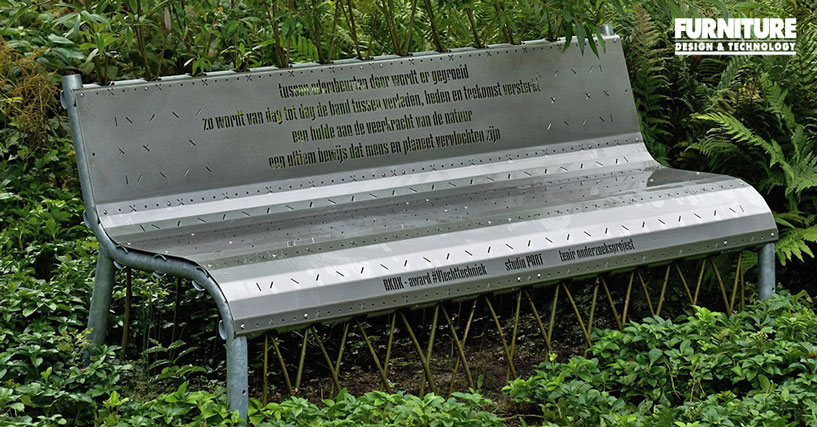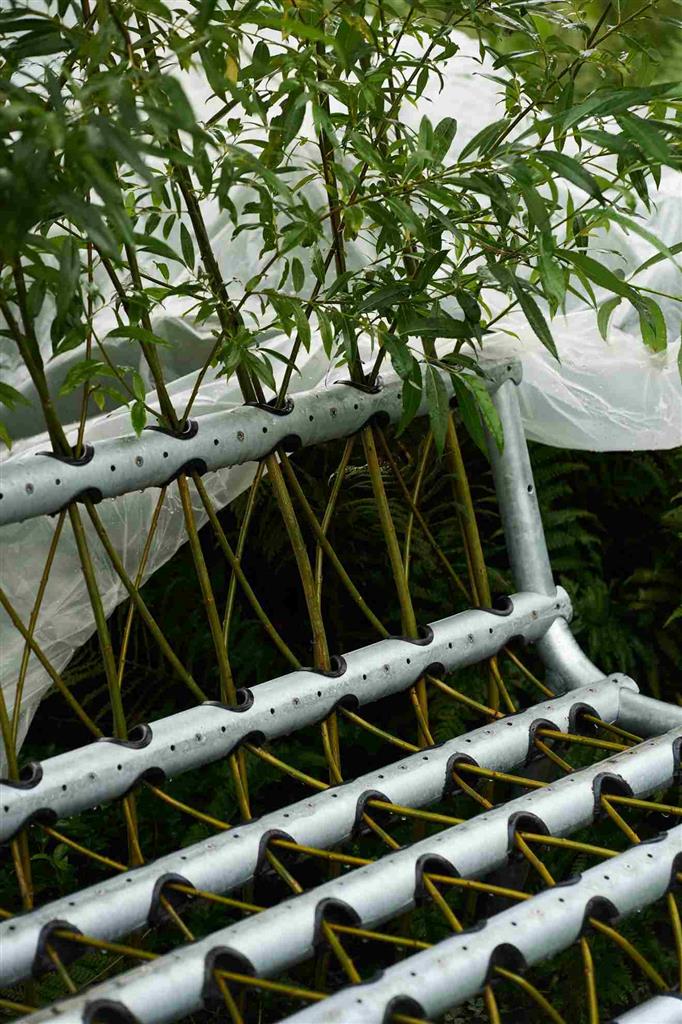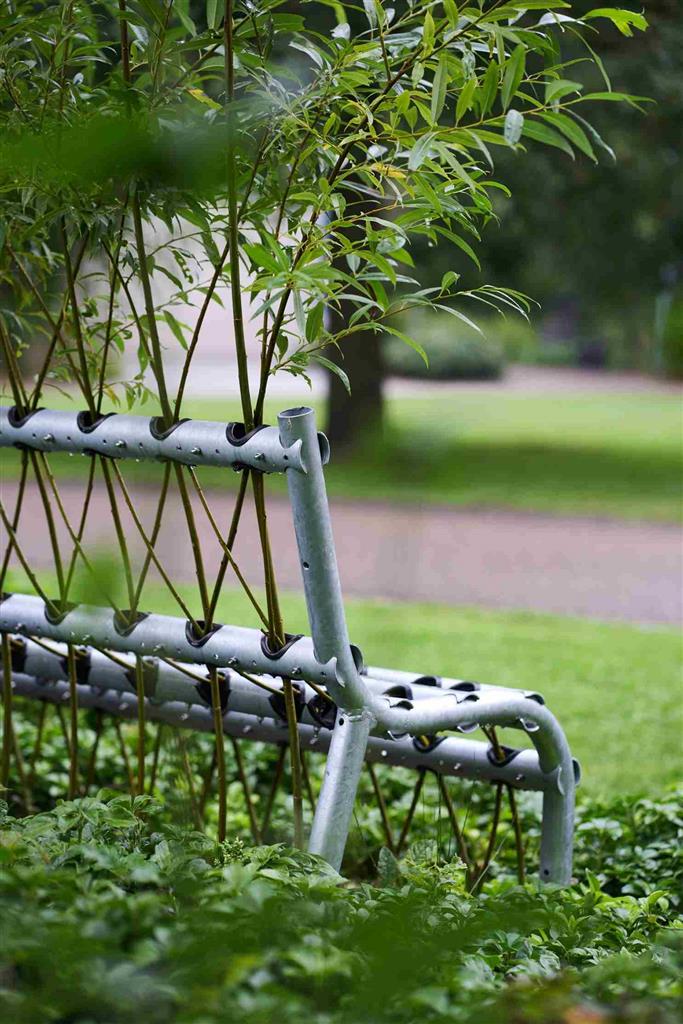
Belgian design firm Studio Part recently has introduced an innovative demountable metal mold designed to guide young willow trees into growing into a self-supporting bench. Named Tenir, which translates to hold or cling in French, this design aims to shape willow branches into an interwoven, curved form that will ultimately become a comfortable seating area. Know more about it on FURNITURE DESIGN AND TECHNOLOGY (FDT).

At the outset, the metal mold includes a cover that serves as a functional bench, providing immediate usability while also protecting the young willows during their initial growth phase and curbing unwanted side branches. Over a period of three to four years, the willow branches become tightly interwoven and sufficiently robust to support themselves, eventually forming a self-sustaining bench. Once the willow has matured into a stable bench shape, the mold and screw foundations can be removed without damaging the roots, leaving no trace of the artificial structure. This project was conceived in response to the 2023 BKRK competition organized by the Bokrijk Open-air Museum near Genk, which focused on the theme of weaving.
Studio Part founders Julie Van Mulders and Lennart Van Uffelen chose to explore live willow weaving—a traditional craft used for creating outdoor structures like domes and arbours—due to its potential for integrating nature into public architecture. According to the founders, this technique showcases a harmonious relationship between humans and nature and has the potential to produce environmentally friendly, even CO2-negative, objects.
The mold is constructed from stainless steel and features rubber inlays to protect the growing plants. The choice of materials reflects a commitment to longevity and reuse. The initial ecological impact of the steel is mitigated over time by the mold’s circular use and the significant number of trees it helps grow. The setup process involves anchoring the mold to screw-post foundations, weaving the willow branches through the frame, and securing the second half of the mold. A temporary seat cover with weaving patterns and a poetic explanation of the project’s ethos is also added.

Setting up the mold takes about half a day and can be efficiently managed by trained garden contractors. Minimal maintenance is required for the willow, mainly consisting of regular watering and pruning during the first year. Studio Part envisions that each mold can produce up to 30 willow benches over a 90-year period, using a total of 1,170 young willows. Reportedly, the first prototype of Tenir had been planted in March 2024 at Bokrijk, and a smaller, mobile version will be showcased at Paris Design Week from September 5 to 14, before moving to Design September in Brussels.
Image credit: Amber Vanbossel
Furniture Design India and the magazine FURNITURE DESIGN & TECHNOLOGY (FDT magazine) are from the trusted 22-year-old media house of SURFACES REPORTER and PLY REPORTER.
FDT is a B2B monthly bilingual magazine from India that shares the pulse of the furniture business in India and connects the manufacturers, OEMS, product designers, architects, showrooms, designers and dealers.
Read More© 2026 Furniture Design and Technologies.. All Rights Reserved. Developed by eyeQ Advertising